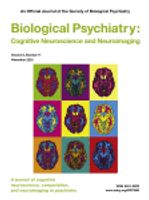PubMed
Kinetics of oxytocin effects on amygdala and striatal reactivity ...
Accumulating evidence suggests that intranasal oxytocin (OXT; 24 IU) reduces amygdala responses to fear-related stimuli in men, while exerting inverse effects in women. However, OXT enhances activity of the brain reward system in both sexes. Importantly, a crucial and still open question is ...
H1
Oxytocin modulates neural circuitr ... | Article | H1 Connect
In non-human mammals, the neuropeptide oxytocin is a key mediator of complex emotional and social behaviors, including attachment, social recognition, and
Nature
Taking axonal delivery of oxytocin | Nature Reviews Neuroscience
Together, these results reveal ... to exert its effects on fear responses. According to the authors, the approaches used in this study may allow investigation into the effects of endogenous oxytocin in other brain regions and on other social behaviours. Knobloch, H. S. et al. Evoked axonal oxytocin release in the central amygdala attentuates ...
Livescience
Frozen with Fear? How the Love Hormone Gets You Moving | Live Science
February 10, 2012 - The researchers induced the newly ... to the amygdala, and the moment they did, the frozen-in-fear rats began to move freely, Stoop said. "When we stop… they stop moving." It was a living demonstration of how oxytocin gets to where it needs to go to control fear. Oxytocin's dampening effect on fear is ...
Nih
Oxytocin Reduces Background Anxiety in a Fear-Potentiated Startle ...
Oxytocin is known to have anti-anxiety and anti-stress effects. Using a fear-potentiated startle paradigm in rats, we previously demonstrated that subcutaneously administered oxytocin suppressed acoustic startle following fear conditioning compared ...
Nih
Oxytocin and opioid addiction revisited: old drug, new applications ...
This review summarizes and critically ... of the oxytocinergic system on opioid addiction‐related processes, as well as the effects of opioids on the OT system at different stages of the addiction cycle. The mechanisms underlying the effects of OT on opioid addiction, including OT' interaction with the monoaminergic, glutamatergic, opioidergic systems and its effect on the amygdala, the ...
ScienceDirect

Oxytocinergic Modulation of Threat-Specific Amygdala Sensitization ...
Overarching conceptualizations propose that the complex social-emotional effects of oxytocin (OXT) in humans are partly mediated by interactions with …
NCBI
Oxytocin Receptors Excite Lateral Nucleus of Central Amygdala by ...
Oxytocin (OXT) is a nonapeptide that exerts anxiolytic effects in the brain. The amygdala is an important structure involved in the modulation of fear and anxiety. A high density of OXT receptors (OXTRs) has been detected in the capsular (CeC) and lateral ...
PubMed
Oxytocin and Memory of Emotional Stimuli: Some Dance to Remember, ...
An ever-growing body of evidence suggests that the hypothalamic neuropeptide oxytocin plays a central role in the regulation of mammalian social behavior and relationships. Yet, mammalian social interactions are extremely complex, involving both approach and avoidance behaviors toward specific ...
NCBI
Oxytocin as a Potential Therapeutic Target for Schizophrenia and ...
For example, a recent study found ... mechanisms underlying oxytocin's beneficial effects on schizophrenia symptoms are not known, but candidate processes are its known ability to regulate mesolimbic dopamine pathways and modify activation of the amygdala....
NCBI
Oxytocin effects on amygdala reactivity to angry faces in males ...
The amygdala is a key region in current neurocircuitry models of reactive aggression as it is crucially involved in detecting social threat and provocation. An increased amygdala reactivity to angry faces has been reported in aggression-prone individuals ...
Nih
"The role of oxytocin in psychiatric disorders: A review of ...
Oxytocin is a peptide hormone integral in parturition, milk let-down, and maternal behaviors that has been demonstrated in animal studies to be important in the formation of pair bonds and in social behaviors. This hormone is increasingly recognized ...
Nih
Oxytocin treatment attenuates amygdala activity in autism: a ...
Intranasal administration of the neuropeptide oxytocin (IN-OT) is increasingly considered as a potential treatment for targeting the core symptoms of autism spectrum disorder (ASD), but the effects of continual use on neural substrates are fairly ...
ScienceDirect

Oxytocin antagonist disrupts male mouse medial amygdala response ...
The male mouse medial amygdala is an important site for integration of main and accessory olfactory information. Exposure to biologically relevant che…
Upenn
Effects of oxytocin on the amygdala during social and anxiety ...
This project investigated the effects of oxytocin on social behavior and amygdala activity in a ketamine model of schizophrenia.
NCBI
Oxytocin moderates corticolimbic social stress reactivity in cocaine ...
Social stress can contribute to the development of substance use disorders (SUDs) and increase the likelihood of relapse. Oxytocin (OT) is a potential pharmacotherapy that may buffer the effects of social stress on arousal and reward neurocircuitry. However, ...
PubMed
Oxytocin reduces amygdala responses during threat approach - PubMed
Oxytocin reduces amygdala responses to threatening social stimuli in males and has been suggested to facilitate approach-related processing by either decreasing anxiety or intensifying salience. The current administration study tested whether oxytocin either reduces or enhances amygdala responses ...
Iasp-pain
Astrocytes mediate the effect of oxytocin in the central amygdala ...
February 2, 2023 - Oxytocin (OT) orchestrates social and emotional behaviors through modulation of neural circuits. In the central amygdala, the release of OT modulates inhibitory circuits and, thereby, suppresses fear responses and decreases anxiety levels. Using astrocyte-specific gain and loss of function ...
ScienceDirect

Effects of a Single Administration of Oxytocin or Vasopressin and ...
The neuropeptides arginine vasopressin (AVP) and oxytocin (OT) have been thought to play a significant role in behavioral regulation in general and in…